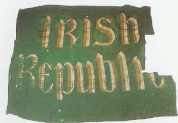No, the problem is Spain, or more precisely, the Spanish political class as represented in politics by the PP, the PSOE and Ciudadanos. The latter two parties have supported Mariano Rajoy’s PP and its policy of squashing Catalonia’s limited autonomy and have enabled the passage of Article 155 of the Spanish Constitution to put that into effect.
Every effort made by the Catalan President and parliament to engage in dialogue with Madrid so as to find a solution to the crisis has been imperiously spurned. The so-called ‘king’ of Spain (what a ridiculous medieval construct that is!) has rowed in on the side of the PP, causing great offence in Catalonia not least for his tacit endorsement of the actions of the storm-troopers sent by Madrid in to halt a democratic process — the independence referendum.
But the problem is also the EU. Every appeal by the Catalans for a vindication of supposed EU democratic ‘values’ has been resisted. The truth is, of course, that the EEC/EU was founded along explicitly anti-democratic lines, as Teresa Forcades, Yanis Varoufakis and others have shown. We in Ireland have our own proof of that anti-democratic nature in that we were forced, twice, to vote a second time in referendums on the Nice and Lisbon Treaties. Why? Because we twice gave the ‘wrong’ answer from the point-of-view of the EU and our own rabidly-Europhile political class.
As I write, the Catalan parliament has just endorsed the Declaration of Independence while, simultaneously, the Spanish parliament has voted to trigger Article 155.
There will be conflict as a result, and we should hope that it will be confined to words. The people of Catalonia have shown themselves to be peaceful democrats, but the same cannot be said of the regime in Madrid headed by the Partido Popular, the latest manifestation of a political line that stretches directly back to the fascist dictatorship of Francisco Franco. And behind that party are the string-pullers, accurately described recently by British journalist Paul Mason as the remnants of Falangism, Ultra-Catholics, Opus Dei and neoliberals. An unsavoury lot! Who, in their right mind, would want to be associated with that?
But what of the rule of law, and what of the constitution? The answer to that is that the Spanish regime has stuffed the courts with pliable judges drawn from the same political class, and has itself shown a contempt for the constitution both in the case of Catalonian autonomy and in ensuring that rampant corruption within and around the PP is shielded. And the answer is also that the Catalan Republic has its own laws and its own constitution. That comes with self-determination.
There are some who worry about nationalism as though that is automatically a bad thing, which it need not be. The Catalan parliament, acting on behalf of the Catalan people, has clearly stated that the independent state would take the form of a republic, and that it would be informed by universal Enlightenment values of Freedom, Equality and Solidarity. As a republican, my visits to Catalunya over the past ten years have convinced me that the people of that region already think and act as republicans in their daily lives and interactions with one another.
There is another political element that should assuage people’s worries, and that is the healthy state of Catalonian politics and democracy. Into the normal mix of Left and Right parties there has been injected in recent years a developing and very healthy progressive movement based on municipalism, employing open discussion of issues and policies and using citizens’ assemblies to widen participation in politics. That is most readily observed in local democracy, and the presence in parliament today of most of the 700 Catalan Mayors is probably the strongest armour the newly-proclaimed Catalan Republic has against aggression from Spain.
Catalonia’s national boundary is very well established. The same cannot be said of the national boundaries of most of the world’s nations, most of which are arbitrary constucts to suit the wants and needs of imperialist powers — lines on maps in Africa, the Middle East and so on. Oh, and in Europe itself!
At this moment what Catalonia and its people need is solidarity. Its enemies are legion, and powerful, from an aggressive Spanish unionist regime to the EU and some of its most powerful member-states, and beyond among Spain’s allies and those with vested interests in Spanish cooperation. The UN has a role to play here, since its own charter recognises the right to self-determination, the conditions for which Catalonia meets.
But most of all, it is down to us, as individuals or as members of groups to offer solidarity to the great people of Catalonia. It is up to us to counter an antagonistic mainstream media both in Spain and internationally, and to put pressure on our own governments to act ethically and in the spirit of the UN Charter on self-determination.
80 years ago it was necessary to raise an International Brigade to fight in defence of the Spanish Republic. Today the battlefield is ideas and principles — and propaganda. Let us make sure we meet that challenge.
Long live the Catalan Republic!
Freedom, Equality, Solidarity!
Adelante!
